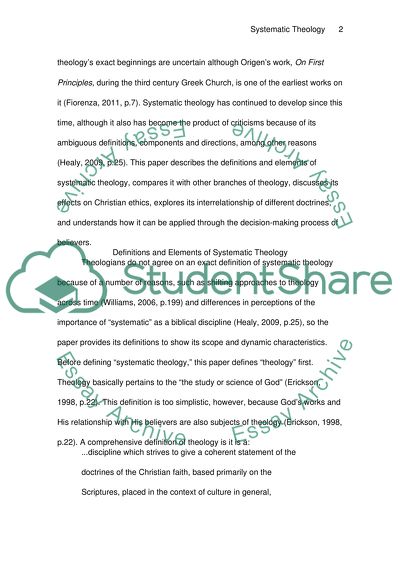Cite this document
(“Discuss the Definition and the source of christian theology , and how Essay - 1”, n.d.)
Discuss the Definition and the source of christian theology , and how Essay - 1. Retrieved from https://studentshare.org/religion-and-theology/1654797-discuss-the-definition-and-the-source-of-christian-theology-and-how-is-systematic-theology-related-to-biblical-theology-and-christian-ethics
Discuss the Definition and the source of christian theology , and how Essay - 1. Retrieved from https://studentshare.org/religion-and-theology/1654797-discuss-the-definition-and-the-source-of-christian-theology-and-how-is-systematic-theology-related-to-biblical-theology-and-christian-ethics
(Discuss the Definition and the Source of Christian Theology , and How Essay - 1)
Discuss the Definition and the Source of Christian Theology , and How Essay - 1. https://studentshare.org/religion-and-theology/1654797-discuss-the-definition-and-the-source-of-christian-theology-and-how-is-systematic-theology-related-to-biblical-theology-and-christian-ethics.
Discuss the Definition and the Source of Christian Theology , and How Essay - 1. https://studentshare.org/religion-and-theology/1654797-discuss-the-definition-and-the-source-of-christian-theology-and-how-is-systematic-theology-related-to-biblical-theology-and-christian-ethics.
“Discuss the Definition and the Source of Christian Theology , and How Essay - 1”, n.d. https://studentshare.org/religion-and-theology/1654797-discuss-the-definition-and-the-source-of-christian-theology-and-how-is-systematic-theology-related-to-biblical-theology-and-christian-ethics.


